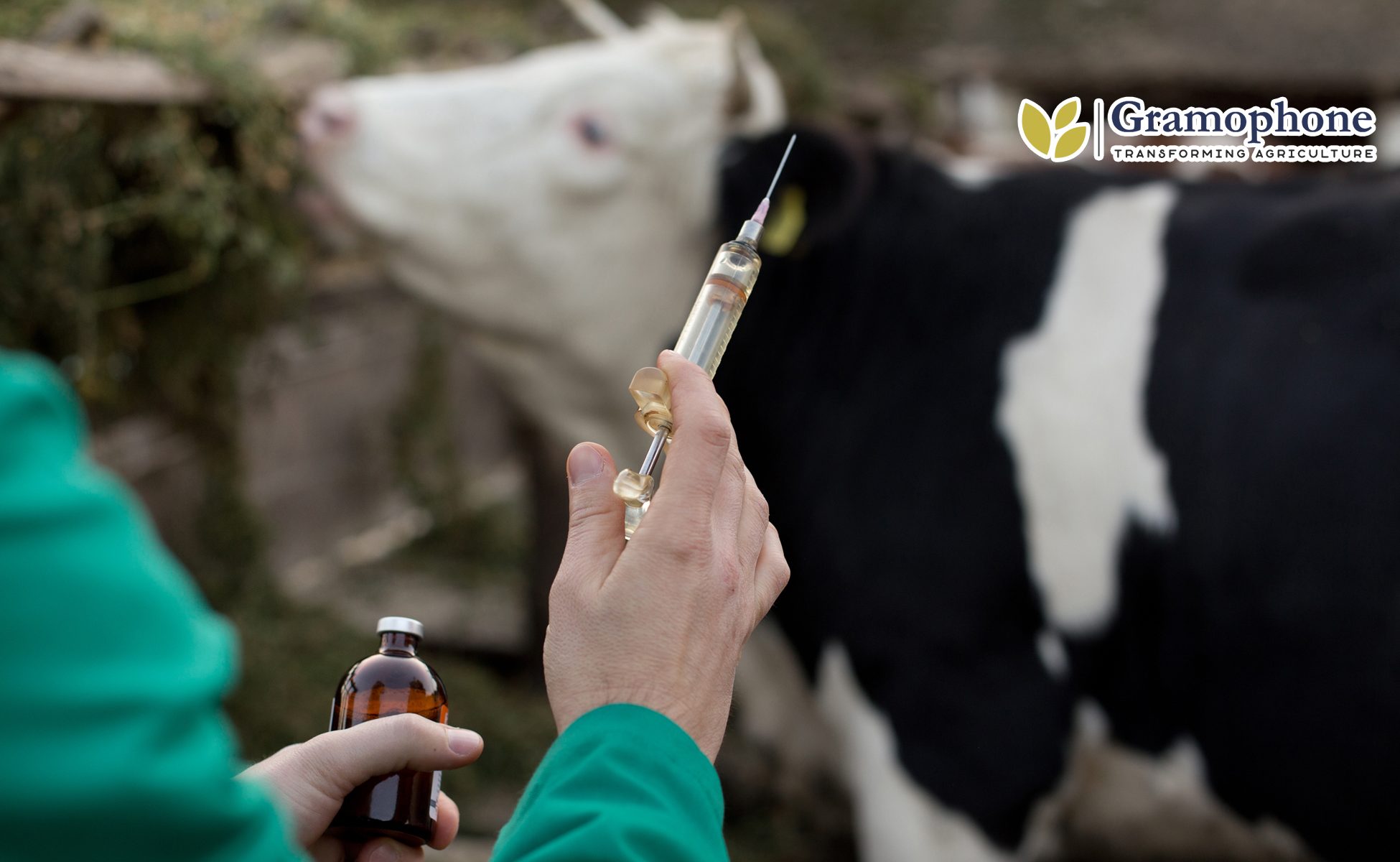Vaccination For Dairy Animals:-
| Sl. No | Name of Disease | Age at first dose | Booster dose | Subsequent dose |
| 1 | Foot and Mouth
Disease (FMD) |
4 months and above | 1 month after first dose | Six monthly |
| 2 | Haemorrhagic
Septicaemia (HS) |
6 months and above | – | Annually in endemic areas. |
| 3 | Black Quarter (BQ) | 6 months and above | – | Annually in endemic areas. |
| 4 | Brucellosis | 4-8 months of age
(Only female calves) |
– | Once in a lifetime |
| 5 | Theileriosis | 3 months of age and above | – | Once in a lifetime. Only required for crossbred and exotic cattle. |
| 6 | Anthrax | 4 months and above | – | Annually in endemic areas. |
| 7 | IBR | 3 months and above | 1 month after first dose | Six monthly (vaccine presently not produced in India) |
| 8 | Rabies (Post bite therapy only) | Immediately after suspected bite. | 4th day | 7,14,28 and 90 (optional) days after first dose. |
Source : NDDB Handbook of Good Dairy Husbandry Practices
Points to be noted
- Animals should be in good health at the time of vaccination. Do not vaccinate animals which are already in stress (Like bad weather, Scarcity of fodder & water, Disease outbreaks, after transportation etc.)
- Try to deworm animals & remove ecto-parasites one to two weeks prior to vaccination.
- Strictly follow vaccination schedule after consultation with veterinary experts.
- Keep records of vaccination for name of vaccine manufacturing company, Batch number, Expiry date, Dose & route of vaccine.
- Maintain cold chain for vaccines which may have to keep for 2-8 degree Celsius temperature.
- Create stress free environment for animals after vaccination.
Like and share with other farmers by clicking on button below
Share
